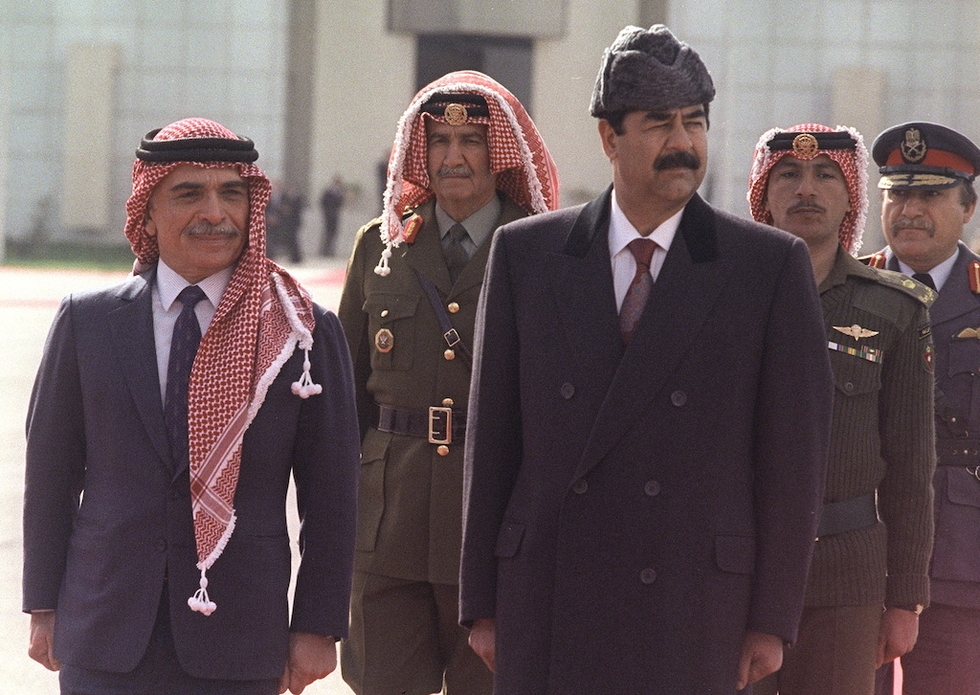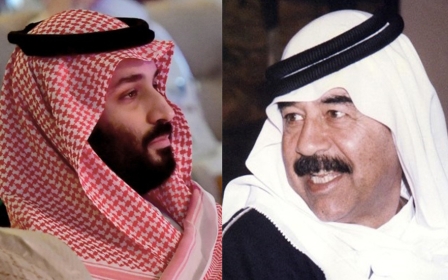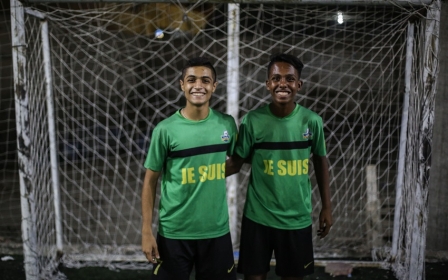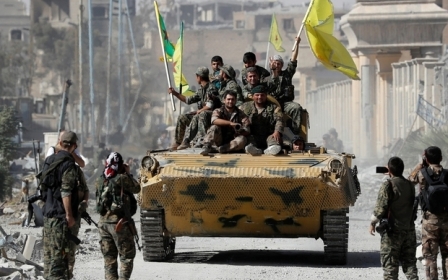Arabic press review: UAE offered Saddam Hussein asylum before Iraq war

UAE offered Saddam Hussein asylum to avoid Iraq war
Sheikh Mohammed bin Rashid al-Maktoum, the United Arab Emirates' vice president and ruler of Dubai, has revealed in a memoir to be published on Tuesday that he offered Saddam Hussein asylum in Dubai before the US invasion in 2003 as a means of preventing the war, according to the Saudi newspaper Asharq al-Awsat.
Despite telling Saddam that Dubai was his "second city", the Iraqi president turned down the offer.
The book written by Sheikh Mohammed tackles 50 years of his life, work and duties, and recalls memories, experiences and attitudes during those years.
In it, Sheikh Mohammed talks about undeclared contacts with Saddam Hussein and the repercussions of Iraq's invasion of Kuwait in 1990, saying it was "a turning point that changed the entire region".
He also wrote that late Libyan leader Muammar Gaddafi asked for his help in order to turn Tripoli into a "second Dubai", but said that "Gaddafi did not desire change, he only wished it".
Of his relationship with Syrian President Bashar al-Assad, he wrote that after the crisis started in Syria, Assad lived "in another world, watching his country sinking into blood and destruction".
Muslims prevent Christians from praying in Egypt
Muslim "extremists" in central Egypt's Minya governorate prevented a number of Coptic Christians from praying in a church and forced the priests out, while the Egyptian security forces stood by and did nothing to protect them, according to the London-based newspaper al-Quds al-Arabi.
The incident relaunched discussion about the role of the Egyptian police in protecting Christians, and triggered fears that officers, who are supposed to protect them, will instead put their lives at risk, according to the newspaper.
The newspaper said some people had accused the government of showing off through the media and trying present itself as tackling the problem, but not providing any solutions on the ground.
The incident took place shortly after President Abdel Fattah el-Sisi inaugurated the largest mosque and church in Egypt, which sparked widespread controversy among Egyptian communities because of their huge cost.
Arabs and Kurds discuss 'confederation' in Israeli conference
A number of Arab and Kurdish academics and researchers participated in a conference held in Jerusalem to discuss the option of confederations in the Middle East, including the idea of one between Jordan and Israel, as well as between Iraq and Syria, according to the website Arabi21.
The conference was organised by the Jerusalem Centre for Public Affairs, which said the conference discussed "the option of confederations in the Middle East to counter the influence of Iran and Turkey".
"This should not frighten Israel, because the Middle East is at a crossroads that requires new options in order to deal with it on the eve of the eighth anniversary of the Arab Spring," the Centre said.
Arabi21 quoted the institute as saying in a lengthy report that "such meetings are of a great importance because they bring together a number of Israeli experts and former diplomats so as to find common understandings with Arab and Kurdish neighbours".
The institute said that Syrian oppositionist Kamal al-Labwani was among the participants, and that he called for "strengthening this idea in light of the close cooperation between Iran and Turkey, and their negative attitudes towards Israel, which requires moderate Arab neighbours to find common grounds with Israel".
Middle East Eye propose une couverture et une analyse indépendantes et incomparables du Moyen-Orient, de l’Afrique du Nord et d’autres régions du monde. Pour en savoir plus sur la reprise de ce contenu et les frais qui s’appliquent, veuillez remplir ce formulaire [en anglais]. Pour en savoir plus sur MEE, cliquez ici [en anglais].




